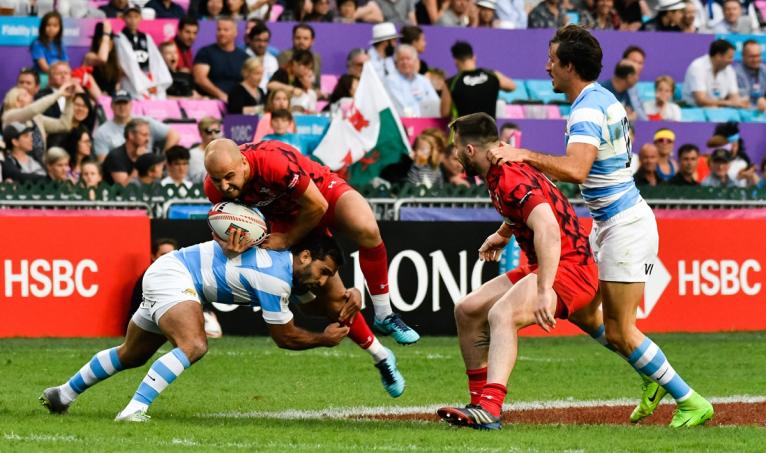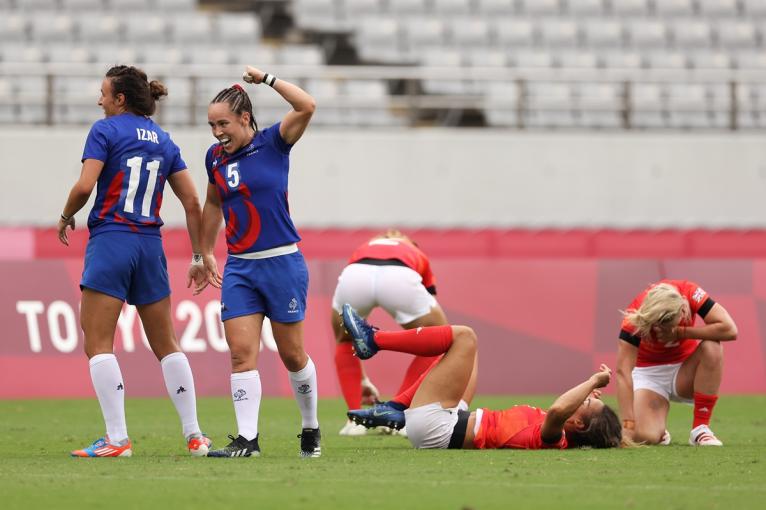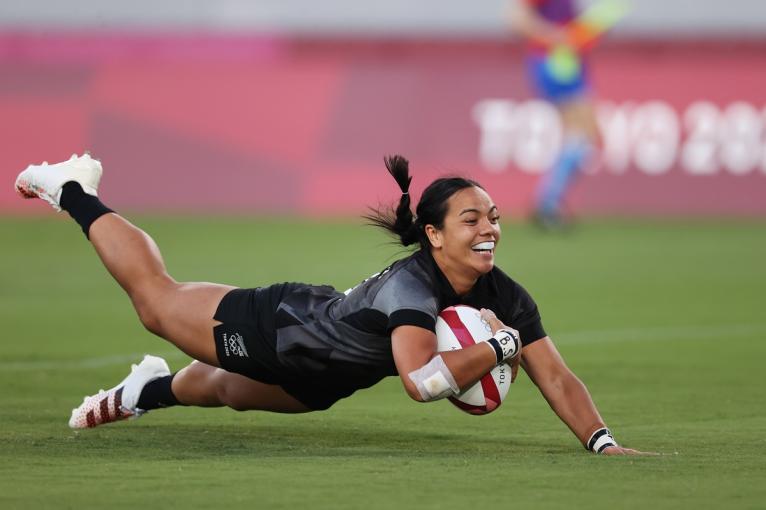More than three billion people around the world tune in to watch the Olympics on TV every four years. At Rio 2016, more than six million spectators came to watch 11,000 athletes compete in 32 sports.
Those athletes accounted for 0.001% of the world’s population. Everyone who takes part in an Olympic Games is in an incredibly privileged position, with an awful lot of eyes watching them perform.
The Olympics is the pinnacle of most sporting careers – many athletes only get one shot at gold. Some athletes turn to diamonds under the pressure, but plenty more crack and crumble.
Here are five go-to tips that helped me when I had to perform under pressure during my sevens career.
Believe in yourself
On the surface, this seems extremely corny. It’s a cliche line from any Hollywood hero movie – but like any quote, it’s all about how you apply it.
The journey to an Olympics starts years before. Countless training sessions and games get you to this point. Athletes dedicate years of preparation and try to maximise every day leading into the games.

I always took belief from my preparation, confident that I had left no stone unturned – from nutrition, to training, analysis, sleep and even social time – in putting myself in the best position to perform.
Sevens teams often use this same idea by putting up photos from the preparation around the changing rooms. They act as a reminder of the work that’s laid the foundations for the team to achieve.
One job at a time
As with any big task that seems overwhelming, from writing a dissertation to winning a gold medal, it’s best to split it into smaller chunks that you attack one at a time.
On an Olympic game day, there are many tasks to consider before you step out onto the pitch. These include when to get up, what to eat, what to pack, when to be at the team meeting, when to call your family … the list goes on.
Once you get into a game the small tasks keep coming: where is the kick-off going, where to chase, options if the ball is won, where did we identify space in the analysis…
Every player will be well versed in these decisions and have their way of completing them but as a general rule, commit to every decision 100 percent to bring good energy.
Not every task will work perfectly. Mistakes will be made but when one job is complete, you look to the next one. By the end of the game, or the day, you want as many positive impacts as possible.
Stepping up under pressure 💪@FranceRugby strikes back!#HSBCSVNS | #HSBCSVNSDXB pic.twitter.com/ospoXeQMXb
— Rugby Sevens (@SVNSSeries) December 2, 2023
Moving through a tournament in this stepwise manner always helped reduce pressure and kept me in a good head space from game to game.
Perspective
The pressure of the Olympics can easily seep into your consciousness as the tournament progresses, and as you gradually tire – physically, emotionally and mentally. So it’s useful to put the tournament into wider perspective to remove unnecessary pressure that athletes so often torment themselves with.

The result will take care of itself. Every game of sevens is affected by many different factors out of your control. Instead focus on ensuring your contribution is the best you can make it. When everything is stripped back, it’s just another game of sevens.
Crucially, whether you win or lose, the result doesn’t define you as an athlete or a person. Getting to the Olympics is an incredible achievement in itself. Friends and family will be extremely proud of you, no matter the result.
How you feel is normal
As a younger athlete, I believed that the reason certain people became professionals was that they could detach themselves completely from any emotion. I thought this was what allowed them to perform at the highest level.
Over my career, I realised this didn’t work for me – or the majority of other athletes. Instead, I found that being able to acknowledge your feelings was normal, and much more powerful.
This stretches across the whole spectrum of emotions – from anxiety and fear, to excitement and happiness. How you feel at any given time is normal for you. Acknowledging it means you keep control of your emotions and stops them running away from you.
This is particularly key during a sevens tournament, especially the quadrennial Olympics, when you need to manage waves of high-intensity games and low recovery periods.
Enjoy the moment
The final and most important tip is relevant for every player – whether you’re starting in mini rugby or competing at the Olympics. And it’s simple. Enjoy it!
It’s why we all begin playing in the first place, but it often gets forgotten as sport turns professional and serious.

Enjoy the moment of playing at the Olympics, testing yourself against the world’s best while representing everyone who has helped you get to this position.
It’s also about enjoying the journey you took to get here, all the challenges and achievements that have allowed you to show your talent on the world stage. In 10 or 20 years it will be the journey that you remember most fondly.
For me, the pressure always dips when you’re playing with a smile on your face.


Comments
Join free and tell us what you really think!
Sign up for free